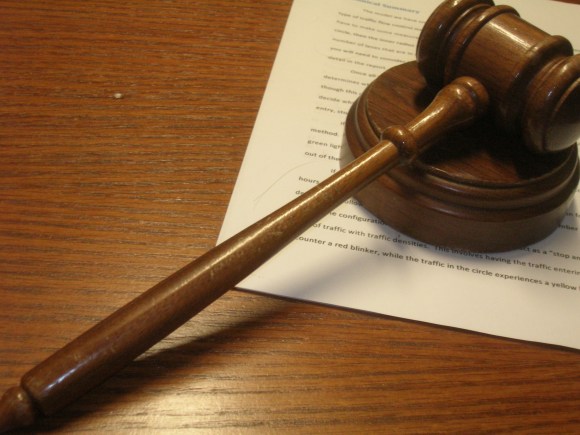
In November 2015, we announced a legal victory for the Wikimedia movement and Wikimedia Foundation in Germany: the court of Munich ruled in our favor in Dr. Evelyn Schels v. Wikimedia Foundation, Inc.. Dr. Schels had filed suit in May 2015, requesting an order to remove her date of birth from the German Wikipedia page describing her. The court held that because Dr. Schels is a famous figure, and because her birthdate was taken from a publicly available source, Wikipedia’s publication of her birthdate did not violate her rights.
However, that wasn’t the end of the story. Dr. Schels appealed the decision, hoping to get a second opinion from the German appeals court. Eventually, she wound up with one—one that agreed wholeheartedly with the first judgment. Again, the German courts sided with the Wikimedia Foundation, and dismissed Dr. Schels’ appeal. The proceeding is now officially over, marking a victory for public knowledge.
In the original suit, Dr. Schels argued that she did not consent to the publication of her date of birth on Wikipedia despite publishing it in her own publicly available dissertation, claiming that the article therefore violated her general rights of personality and data protection. She also claimed that the publication of her birth date on Wikipedia could lead to discrimination in her work.
Upon review, the Munich Court rejected Dr. Schels’ claims. They found it decisive that the plaintiff herself was the one that publicly provided her birth date in a book that she herself had published, and that there was public interest in the information because the plaintiff was a renowned, public producer of documentaries. Upon appeal, the Munich court unanimously decided that the appeal has no prospect of success, and reiterated the reasoning of the original decision.
The court’s decision affirms the importance of publicly available information, and the process that underlies Wikipedia’s collection of publicly available knowledge. With our projects, we make sure to source our information with publicly available sources, providing transparency and accuracy in the knowledge that we share. And those who publish information publicly should expect many people to find such information online, on websites such as Wikipedia.
Publicly available information provides the foundation for Wikipedia and the Wikimedia movement. It is also essential to the spread of free knowledge. The Wikimedia Foundation will continue defending free knowledge, for both the Wikimedian community and the global community, by providing the best and most comprehensive encyclopedia possible. And we will fight any lawsuit that seeks to obstruct the spread of knowledge.
Jacob Rogers, Legal Counsel
Wikimedia Foundation
Thanks go to Delbert Tran, Legal Intern, for their assistance drafting this blog post.

Can you help us translate this article?
In order for this article to reach as many people as possible we would like your help. Can you translate this article to get the message out?
Start translation